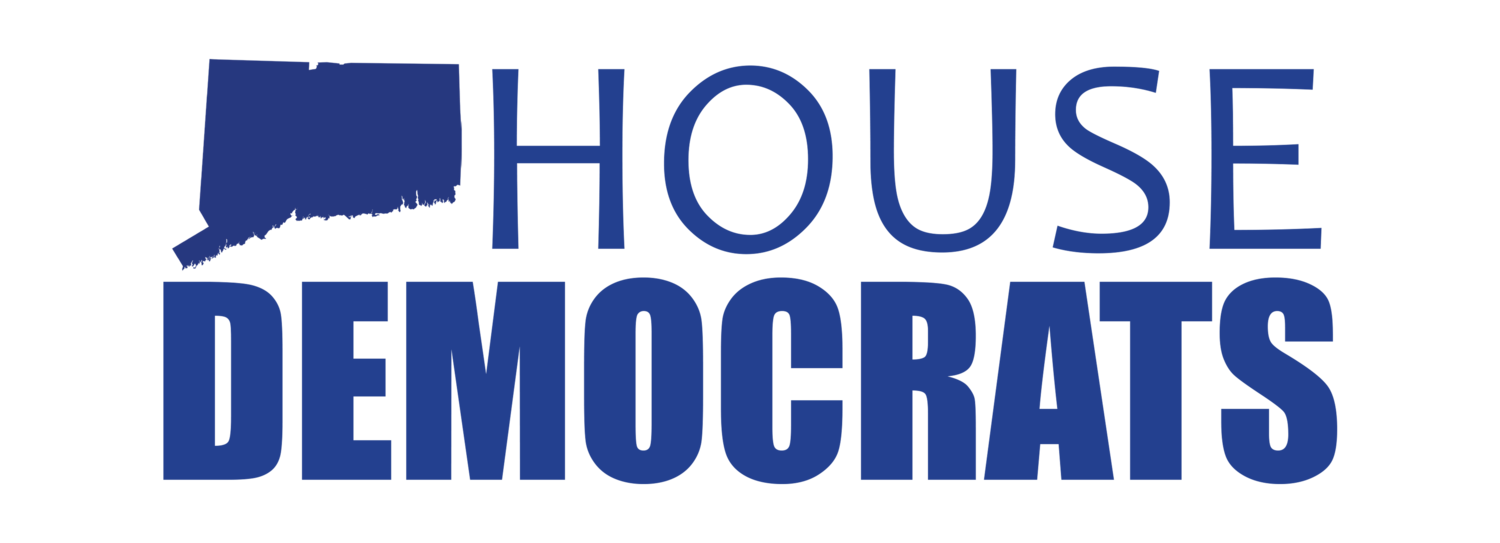Broad-Based Reform to Lower Property Taxes and Bring Predictability to CT’s Finances
One of the greatest challenges our state has faced over the past several years has been our reliance on the financial services sector to make up a significant portion of our tax revenues. Comptroller Kevin Lembo stated, “The biggest source of revenue volatility is in quarterly income tax filings, those workers have earnings closely tied to Wall Street and in turn, their tax payments are subject to the ebb and flow of the stock market.” Last session, we took an important step forward by implementing a program that in future years will automatically put a portion of our revenues into a rainy day fund (the Budget Reserve Fund) to bring greater budget stability. However, more work must be done to provide working families and small businesses some tax relief.
Building on our successes to lower property taxes and bring predictability to CT’s finances, House Democrats plan to work on the following:
- Cap Governor’s Bonding Authority on Non-Economic Development Related Projects
- We Need to Move Away from our Heavy Reliance on our Already Broken Property Tax System
- Tackling Pension Funding
- Reduce Management and Back Office Operations for State Government
- Require Cost-Benefit Analyses and Public Hearings for All Department of Economic and Community Development Projects that are Proposed to Receive Significant State Money
- Incorporate Long-Term Goals Into Today’s Budget Decisions
- Work with our Front-Line Workers to Find Savings, but Continue to Provide Services
- Make Sure we are Delivering Services Efficiently and Effectively
Solution: Cap Governor’s Bonding Authority on Non-Economic Development Related Projects
When we take out bonds for specific projects, those projects must have future returns that benefit taxpayers. We will cap the Governor’s bonding authority on projects that have no clear economic-development nexus.
Solution: We need to move away from our heavy reliance on our already broken property tax system
In recent years, House Democrats developed a program to dedicate a portion of our sales tax directly to our cities and towns. This funding is just one small step in fixing our property tax system. We need to ramp up our economic development which will help all of our towns by giving them a revenue source other than property owners.
Solution: Tackling Pension Funding
Governor Malloy, Comptroller Lembo, and Treasurer Nappier have all suggested changes to the way we fund our pension system. However, none of those ideas have moved forward into real conversations with our labor unions about how we make sure we are on a sustainable path. House Democrats will step up to the challenge, and while we do not negotiate on behalf of the state, we will work to facilitate conversations.
Solution: Reduce Management and Back Office Operations for State Government
We have 13 quasi-public authorities many of which have their own human resource departments and separate infrastructure for benefits and other duplicative back office functions even as similar services have been consolidated in other agencies in recent years. We will consolidate these functions of the quasi-public authorities under a single entity in an effort to save money.
Solution: Require Cost-Benefit Analyses and Public Hearings for All Department of Economic and Community Development Projects that are Proposed to Receive Significant State Money
All projects that are funded by the Department of Economic and Community Development will be required to go through a public vetting process and they will continue to be analyzed after they receive their financial award.
A recent study of the Small Business Express program found that the program is very successful, but the agency did not have the ability to fully audit all of the companies that are receiving funding through the program. We will change that to ensure that all of the companies will be audited.
Solution: Incorporate long-term goals into today’s budget decisions
Although we will continue to budget on a biennium basis, we are also going to include as part of our Appropriations and Finance Committee process an analysis of long-term expectations for better programmatic outcomes. For example, if we are investing in a new fleet of vehicles for the state police, we want to also see costs for repairs and maintenance go down.
Solution: Make sure we are delivering services efficiently and effectively
Governor Malloy has made some significant changes to the way CT provides services, whether by privatizing certain agencies, laying off staff, or other administrative changes. As part of our Appropriations process we are going to take a serious look at what the effect has been of these changes. We will also do what Governor Malloy failed to do and create a commission of front-line workers who can provide cost-savings ideas to the legislature.
